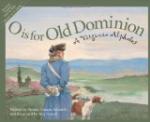It seemed that the way to get the best depth of water would be to go to the lower side of the wide, shallow creek-mouth, and then to enter the stream in that affectionate style of navigation called “hugging the shore.”
And that is the way we did it. But with all the affection that could be put into the matter, we could not find along that shore any such water as the chart indicated; and Gadabout was beginning to need it sorely. So, we sent the sailor out to see where it had gone to. He found it over on the other side of the creek. Our confidence in the chart had been betrayed. Depending upon it, we had been hugging the wrong shore.
At first, we thought little of the matter; for, our side of the stream having played us false, we felt no hesitancy in transferring our affections to the other side. But we found that poor Gadabout took things much more seriously. She could not so lightly “off with the old love and on with the new.” For her the affair had already gone too far; already, for the side she was now on, she had formed a serious, a hopeless, a lasting attachment.
Our craft aground, our prospects of attending church next day vanished. Slowly the tide went down; slowly the moon came up; and Nautica made some candy. By the time it was ready to be put out on the guard to cool, even what little we had found of Powell’s Creek had disappeared—all about us was just moonlight and mud. And ahead of us and behind us (sticking down a little way in the mud, but sticking up more in the moonlight) were the two anchors that we had put out to hold us in position when the tide should rise in the night. They looked like great crabs sitting there and watching us.
Of course, sometime in the darkness, Gadabout rose on the flood tide, and perhaps was even ready to cross to the other side of the creek and proceed to church. But nobody else was ready then; and so, finding all asleep, she slowly settled down once more, and we found her in the morning again hard aground. The good minister of Merchants’ Hope Church must surely have reached “Seventhly, my brethren,” before our houseboat was afloat.
Now, we moved her out in deeper water (for it would not do that she should be aground next day when we ought to be starting for Eppes Creek); and it was gratifying this time when we cast our anchors, to see them go plumping out of sight as anchors should, instead of looking so distressingly unnautical with flukes sticking up in the air.
But mooring a boat (securing her between two anchors, one ahead and one astern) is rather unsatisfactory at the best. Often it is necessary so to hobble your floating home where there is danger of her swinging upon hidden obstructions; but it is hard on the poetry of houseboating. To be held in one position, with unvarying scenes in your windows, is too much like living in a prosaic land home set immovable in sameness.
Your gypsy craft should ride to a single anchor; free to swing to wind and tide in the rhythm of the river. It is of the essence of home life afloat to sit down to dinner heading up-stream, and to rise from table heading down-stream; to open a favourite book with a bit of shore-view in the casement beside you, and to close the chapter with the open river stretching from under your window, your half-drawn shade perhaps cutting the topsail from a distant schooner.




